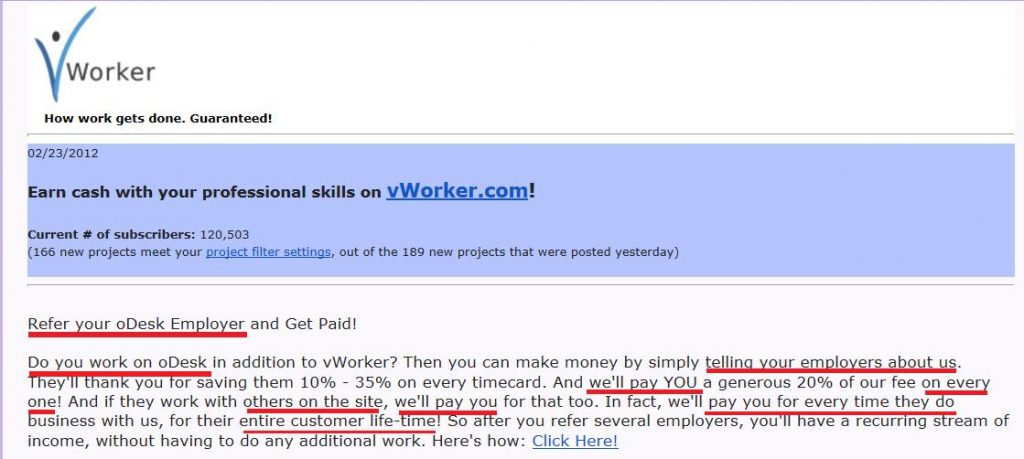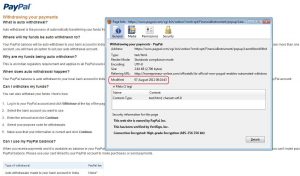 Supriya Ghurye is a post graduate in textile processing technology from Mumbai. She had her stint as a fashion merchandiser with popular brands in Mumbai and Bangalore. After giving 5 yrs of her time to the corporate world of fashion, she decided to call it quits, and choose to be a homeprenuer. Since 2008, she has been successfully running her fashion consultancy business from her studio at home. She loves origami amongst loads of other things, and aspires to create wearable fashion inspired by origami
Supriya Ghurye is a post graduate in textile processing technology from Mumbai. She had her stint as a fashion merchandiser with popular brands in Mumbai and Bangalore. After giving 5 yrs of her time to the corporate world of fashion, she decided to call it quits, and choose to be a homeprenuer. Since 2008, she has been successfully running her fashion consultancy business from her studio at home. She loves origami amongst loads of other things, and aspires to create wearable fashion inspired by origami
Hi Supriya, great to have a fashion guru amongst us. Before we talk about fashion and its trends, give us a peek into the mind from which these ideas take shape. Tell us about yourself.
I’m Supriya, from Bangalore.
I grew up in Mumbai, but have been staying in Bangalore for over 5 years now. I graduated from Mumbai university with a major in Chemistry & then did my PG in textile processing technology which helped me gain in-depth knowledge of the apparel industry. I worked as a Fashion Merchandiser for 6 years before starting my fashion business.
I use my free time for sketching, painting, listening to music, traveling, meeting new people, reading books & fashion magazines. I am also interested in Origami, the Japanese art of paper-folding to create intricate designs. One day I wish to create a unique Origami inspired fashion collection of wearable art.
We have heard that creative minds are the most passionate of all. Is it the same with you as well? How passionate are you about fashion?
Fashion is my passion. Colors play a significant role in my life. They reflect my state of mind. Fashion should be fun, creative & above all it should be comfortable.
I’m a Creative Fashionpreneur – Providing research, design, development & consulting services in Fashion.
With a passion for dressing up & helping others select the “right” outfits, I grew up deciding to change my interest into a full time profession. Fashion being close to my heart since childhood, I always wanted to be a creator of new trends, wherein I could express myself best through my designs. That’s when I decided to use my creativity to explore & fulfil my aspirations as a designer. The outcome of this journey is”Fuel4Fashion”.
I am always keen to experience & explore the world around me though the vehicle of art. My experiences influence my work in terms of contemporary styling. I’ve enjoyed whole hearted support & encouragement of my husband in pursuing my creative entrepreneurial venture.”
You are passionate about fashion amongst those who think it is fashionable to be passionate. Good to know. So, when did you decide to leave your plum job as a fashion merchandiser to work from home on your passion.. rather.. fashion?
In 2008, I decided to leave my full time job in Fashion merchandising to fulfill my aspiration of running my own fashion design consultancy out of my home studio in Bangalore. Prior to that I worked for 5 years in a well known buying agency in Mumbai followed by a leading apparel manufacturer in Bangalore for a year. Having spent 6 years of my career in merchandising, I decided to shift my focus from a technical side of the fashion & apparel industry to a more challenging & creative side of fashion & apparel designing. So over all I had a very smooth & well planned transition from being an employee to a Creative Fashionpreneur at Fuel4Fashion.
So, you are the founder of Fuel4Fashion. Tell us more about what kind of fashion projects are looked into here.
I’m a highly creative Fashion design consultant with an impeccable sense of taste and trends. I specialize in Women’s wear, Mens wear as well as Kids wear in multiple product designing across various categories within the apparel industry. I mainly work with international clients especially the start up labels & mid size companies, helping them build their collection from concept to completion. I help my clients to generate the fashion ideas based on their concepts and convert them into the clothes that people desire across all three major segments – menswear, ladieswear and kidswear. For individual clients looking to make a style statement, I provide style consulting for events and wardrobe management services.
As fashion consultant, I understand that you get to handle projects that range from sketch ideas on paper, to, deliver a cut-and-stiched-apparel as end product shipped to the customer. Sketches, yes, I understand are conceptualized and shared from your studio at home. However, it makes me wonder how you manage the production.. ie… complete range of stitched apparel shipped to the client. Do you work on this from your studio at home as well? Do you employ additional hands?
I provide customized solutions based on my client’s requirement. Some ask for fashion sketches , some for sketches+samples & some ask from concept to completion ie from idea to sketches to samples & then with production.
I collaborate with sampling units & manufacturers across mumbai , bangalore & tirupur accordingly. I provide design services from my home studio. I provide them with all the details ,visit them once in awhile to monitor the development. They dispatch final delivery to my client’s location
It gives me freedom to work at my own convenience yet get the feel of being working with lots of people
Indeed. Freelancers are best known for their skills in recognising latent talent and encouraging collaboration. I see that you have taken this to a different level with 3rd party unit collaboration. Since how long have you been working from home?
I have been running my fashion consultancy from my home studio for past 3 years now & I’m very glad that I made a wise decision then, to leave my full time job to experience entrepreneurship which was lingering in my mind for quite sometime when I was employed .
You said that you have no prior experience in running a business, and venturing out on your own was a bold step in this direction. So, what strategy did you adopt to spread the word about your services?
Being a self taught fashionpreneur with no prior experience in actual fashion designing, I almost took a year to settle down in business, network, gather work contacts & generate client leads. Being born & raised in Mumbai and then starting up a new business in an altogether unknown city like Bangalore was the most challenging task for me.
Being in a creative field, initially I started with circulating copy of my physical fashion portfolio to the potential & prospective clients who were placed locally. For my global clients, I created an online portfolio & started sending them in emails with my profile.
Social media was booming in 2008, so I feel I’m fortunate to have adopted it right from its growing stage. I started keeping a tab on all the latest happenings & hot start ups in the virtual world especially in the fashion industry & started evaluating on how best I can utilize each one of them for my fashion business. Professional networking sites, fashion networking forums, social media sites, entrepreneurial networks, online consulting sites etc provided me a strong online platform for showcasing my visibility for Fuel4Fashion on the web world.
We start as toddlers and eventually learn to walk. Its the same with business as well, isnt it? So, how has the journey been since you established Fuel4Fashion from your studio at home?
My journey since the time I got my first client for Fuel4Fashion has been very challenging & yet interesting. I had my share of ups & downs , good & bad, But, the most important thing is I sailed through all them. In 2010, I started with designing for one client in women’s wear but over the time, I carefully & gradually progressed to handling several clients in multiple categories in women’s wear, mens wear as well as kids wear.
Few learning that I would like to share :
I figured out focus, patience, discipline & self motivation is the key to successfully manage business for any homepreneur. Time management is crucial right from the day one, once you master that art, not only you have a dedicated time for your work, but you also have a free time for your family & yourself. Never underestimate your potential talent, you will find lot of people around to De-motivate & discourage you. Have patience, trust yourself & keep going. People don’t understand concept of homepreneurs,so dont go out of the way to prove yourself to anyone. Sooner or later your work will speak for you. That is your greatest achievement. Enjoy that phase.
Well said, Supriya. Homprenuers should focus on what they do best (the actual work which will fetch the $$) .Actions speak louder than words, and sooner or later (the very same demotivating ) people will come out of their own free will to know your success mantra, and will want a piece of your pie.
Can you share some of the resources that have found to be useful as a fashion designer
- Women Online: www.wearewomenonline.com
- The Location Independent Lifestyle: www.LocationIndependent.com
- Where women create : http://www.wherewomencreate.com
- Mogul Moms : http://www.themogulmom.com/
- Entrepreneur magazine: http://www.entrepreneur.com
- Independent Fashion Bloggers: http://independentfashionbloggers.org/
- HEN Networks : http://www.henindia.com
In any creative field, idea is money.This is like a double edged sword. Unless you share your idea, clients will never know how creative you are. But, at the same time, once you share ‘your’ idea, its out there in the open and you have absolutely no control over it. TRANSLATION : How do you protect your creative ideas and restrict others from using it without making payment to you?.. how to avoid getting scammed by unscrupulous minds?
In any creative field, most of the prospective clients ask to provide your previous sample work. Once you share your idea, its out & then you have no control over it. So be careful about what you are sharing, how you are sharing & with whom you are sharing. Never accept to do free work for any client- big or small, irrespective of the scope of the project. 9 out of 10 people are looking to get free work done under the name of sample work.
Keep a reliable work contract handy & use it whenever you acquire any new projects to avoid any misuse of your services from your clients. Work out in advance your business operating cost, liabilities & any other overheads so that it becomes easy for you to set up your project charges. By doing this you know your scope of negotiation. Never work for peanuts if your deserve a slice of cheese.
Very true, It seems scamsters are the most democratic ones. They have no caste creed or color..and is the same across all categories.. All that they focus on is to con gullible minds off their time and efforts for free. So, now that you have come this far..Where do you see yourself in the next 5 yrs
Building up base for the business is the most important aspect at the present time. In next 5 yrs business would have acquired sustainable momentum & would have branched out in number of areas. The retail space is continuously expanding with new options & hopefully Fuel4Fashion will have a strong role to play in a significant number of areas. Upcoming designer can now target global audiences & micro niches are now viable markets. With the increasing number of avenues for designers there will be a scope for companies like Fuel4Fashion to provide solutions that cater to this segment.
That is just wonderful. Great to know that you have mapped out the next 5 yrs for Fuel4Fashion in the same systematic manner as in which you made your transition from a regular employee to a homeprenuer. Such planned approach will add value in terms of effort and results will follow. It was great having you at homeprenuer-online, and thanks for sharing your journey thus far. Once again, thanks for agreeing to mentor willing minds in the field of fashion.
Readers can connect with Supriya Ghurye via Twitter and LinkedIN




 Phew !.. that will be for another post… later.
Phew !.. that will be for another post… later.



 Supriya Ghurye is a post graduate in textile processing technology from Mumbai. She had her stint as a fashion merchandiser with popular brands in Mumbai and Bangalore. After giving 5 yrs of her time to the corporate world of fashion, she decided to call it quits, and choose to be a homeprenuer. Since 2008, she has been successfully running her fashion consultancy business from her studio at home. She loves origami amongst loads of other things, and aspires to create wearable fashion inspired by origami
Supriya Ghurye is a post graduate in textile processing technology from Mumbai. She had her stint as a fashion merchandiser with popular brands in Mumbai and Bangalore. After giving 5 yrs of her time to the corporate world of fashion, she decided to call it quits, and choose to be a homeprenuer. Since 2008, she has been successfully running her fashion consultancy business from her studio at home. She loves origami amongst loads of other things, and aspires to create wearable fashion inspired by origami



